Another experiment for everyone (in addition to the one in this week’s Covid post) is that I want to better figure out when to split things off into their own posts. Is there anything here you would link to or want to later refer back to, and thus you think would benefit from standing on its own and/or is worth expanding out? Leave a comment to that effect, or like a comment already there, and good chance I’ll go ahead and do that. One of the problems with writing is the constant lack of good feedback.
Who To Blame
It is always important to have someone to blame. Does the person have to actually be responsible? Not strictly speaking, no, although it helps. There does need to be some symbolic link there, however flimsy.
For example: Thanks, Obama (or Biden, or the president of your choice).
Magic Online not working or give you a bad hand? Blame Worth Wollpert.
Skype not working or has bad call quality? Blame Jaan Tallinn.
Google Search getting worse every year? Blame, or complain to, Danny Sullivan.
(Also, yes. Yes it is.)
You heard him.
Sports Go Sports
NBA puts teams ‘on notice’ about tanking. This year’s upcoming draft class has a phenomenal top two picks, and there are six teams with expected win totals of under 27 out of 82 games (so less than a third). I expect quite a bit of tanking.
The commissioner has thought of the correct solution and it is amazing.
As the new season progresses, Silver and his constituents likely will continue to face questions about tanking as next year’s draft draws closer. In regard to a possible resolution to incentivize bad teams, Silver said the league has thought about relegation, but admitted it would be “destabilizing” to the NBA’s business model.
However, if this scenario were to come to fruition, Silver explained that relegation would potentially see one or two of the NBA’s worst teams demoted to the G League, while the one or two of the G League’s best squads would be promoted to the NBA.
“It would so disrupt our business model,” Silver said, per ESPN. “And even if you took two teams up from the G League, they wouldn’t be equipped to compete in the NBA.”
If they did this, I might actually start watching basketball. Relegation is awesome.
The ‘our franchises want to keep being worth billions of dollars’ hurdle is an issue.
There is a clear range of more moderate options. They center on the obvious fact that you do not want to reward obvious tanking. You want to punish, or at least not reward, bottom finishers.
So here’s a simple proposal. Set a minimum number of games, let’s say 20, and a maximum ‘you still suck’ number of wins, let’s say 30.
All teams within that range are treated equally.
If you cannot win at least that many, you pick behind every team with 20-30 wins. Your balls don’t get entered into the draw until then. You failed the league by not putting on a quality product. You don’t get nice things.
You would still have some tanking of teams to avoid winning a 31st game, but the need to ensure you won 20 (and the fact that teams would relish keeping you at 19) would keep things contained.
Gambler bets $50 on Astros to beat Phillies in the World Series back in April, gets 2,500 to 1 odds and is one win away from cashing $125,050. Note that this is better odds than picking two random teams to win - 16 AL teams times 16 NL teams times 2 for the World Series is only 512. And the Astros have been one of the top teams the whole time, second in probability only behind the Dodgers. The Phillies were a long shot, but how long? The playoffs are random and there are three wildcards. Seems like it was a great bet.
Unfortunately, I don’t expect to get excited by the World Series this year without the Mets. Football is providing simply fantastic entertainment with the scroll-blocking pillows safely in place at the bottom of the screen. With the Phillies facing the Astros, it is clear one is ‘supposed’ to root for the Phillies here, but I can’t get myself to care enough to make time and especially not enough to defend against Twitter spoilers.
I Will Not Allocate Scarce Resources Using Prices
In particular, congestion pricing in New York City would taste terrible and the portions are so small.
The dunks here are, and I am being more than fair here:
Driving would only fall by 1% in NYC.
Manhattan isn’t that polluted.
Buses are worse than cars because pollution.
The money it gives to the MTA won’t entirely fix their funding issues.
Visitors to Manhattan are being ‘unfairly’ taxed.
The details haven’t been worked out, despite me knowing all the impacts.
Sounds like we need more congestion pricing in more areas. More Dakka!
Remarkably good results in California cutting water usage by asking nicely, a 50% cut. A lot of this was advising people not to drain and refill their pools. They did still then move to allocation by price going forward.
Virgin Airlines to offer a lottery to those who choose the middle seat, providing an incentive with expected value of approximately zero dollars. This is exhausting.
Our Words Are Backed By Nuclear Weapons
A thread explaining one reason why ‘calls for diplomacy’ right now can be especially damaging to prospects for peace. Under this model, such calls are used internally by Putin to maintain his narrative that the West will fold and allow him to claim victory, which would require terms we cannot possibly abide under present conditions, whereas the only way to get a possible settlement is for Putin to lose such internal battles and be forced to sue for peace. I do not know the extent to which such models are accurate. I do know that if you are not modeling internal Russian political dynamic responses to moves, you are not seeing the relevant game board.
I also continue to urge everyone talking about potential use of nuclear weapons to ensure they are using a good decision theory. Don’t stare down a dictator with a policy that does poorly in the dictator game, and remember that the dictator can see your source code and to start that analysis from before the game begins.
Report says that democracies (including non-Western ones) are increasingly united behind America and opposed to Russia and China, in terms of public opinion. The non-democratic world’s views on Russia and China are still positive, similar to those countries’ attitudes towards the United States. Positive views of China are highly correlated with the Belt and Road Initiative. In aggregate this looks like noise, the distributions do tell a story about divergence on Russia and America, although not on China.
Naval Gazing (via MR) makes the case for missile defense.
(Technical note: The argument ‘if you shoot down half the missiles than half as many people die’ seems wrong to me. There is diminishing marginal returns to missiles in terms of death toll, and the most important missiles (the ones that do the most damage) will have redundant backups in a full scale launch. Many others will have overlapping zones of death, general damage doesn’t scale in linear fashion, and so forth. That’s if the attacker does not anticipate defense. If the attacker does anticipate defense, they can either get and launch more missiles (although note that you need to more than double the launch count to compensate, because you don’t know which missiles get shot down, you can’t simply pair everything up) and they can shift focus to more redundancy on higher-value targets.)
Prediction Markets
Journalist Ben Collins says ‘very good example of how illogical betting markets are’ and gives classic example of prediction markets being completely logical and doing good probabilistic reasoning.
Polymarket has midterm markets central page up and running now that we are close enough to election day. Seems slightly less bullish on Republican chances than PredictIt. Markets in general continue to be more Republican-leaning than polls and poll-based forecasts, as they have been for a long time. We say this is smart of them because they were directionally right about 2016 and 2020, yet they were very wrong while making directionally the same prediction in 2012 and 2008 and were so in obvious ways I noted at the time (alas I wasn’t blogging about it so not publically), and everyone was surprised by Democratic results in 2018. I will note that I do mostly share the market opinions this time around, and this time my PredictIt wagers are on the Republicans from a while back. However I also notice that it is common for markets to be crazy bullish on Republican prospects.
Tyler Cowen Watch
Tyler Cowen, Classical liberalism vs. the new right. Broadly insightful, but issues here are sufficiently sensitive in multiple directions that I would want to choose further words very carefully. Brian Chau responds, promises future spicier additional take later.
Tyler points out this strengths the case for classic Liberal Democracy and limiting the power of the government and its leaders. If voters turn to bad leaders every time they face hard times (where they interpret ‘high gas prices’ as hard times this particular cycle in this particular place) then you will inevitably get bad leaders, so you need protection against bad leaders.
While true, such protections are limited, and sustaining them requires agreement on Liberal Democracy that is lacking on all sides.
The Balsa response is that this yet another case for low gas prices, abundance and good times. Democracies make much better choices in good times than bad times, which means good begets good and bad begets worse. If our ability to make good decisions is held hostage to low gas prices then low gas prices (and low housing costs, and affordable education and healthcare, and so on) they must have.
One can also ask, if Democracy only works (and Democrats only win elections) under low gas prices, are they taking steps to ensure at least medium-term that gas prices remain low? Or are they continuously taking steps that raise gas prices? If they are taking steps that raise gas prices, what are they getting in exchange?
Tyler Cowen also notices workers being ambivalent about unionization drives. The benefits seem modest at best, and the risks to the business underlying the union, and its willingness to invest or even continue to exist, are high. If the potential members of a plan to extract resources for members are ambivalent about the scheme, it is a sign the scheme is quite the bad idea.
Tyler Cowen warns at Bloomberg that with AI we will need to relearn how to use the internet. Non-obvious details here seem largely wrong, big picture of ‘we will shift to interacting more via AI/LLMs’ seems right. The practical short term problem is that AIs are highly lossy. You can get mostly right answers, and get a lot of the information you would want, in nice form and quickly. The better your AI fu, the higher values of ‘mostly’ and ‘a lot of’ and also ‘in nice form and quickly’ qualify here, so skilling up will be valuable. In some sense this AI-replacement is already happening, any time you are taking content from an ‘algorithm.’
One expectation I have here is that there will be an increasingly sharp divide between the parts of the internet (and the rest of life) that are ‘get exactly what you specified in a way you actually understand’ which we might call ‘hard,’ and the ‘soft’ parts that are ‘get something that seemed right to some algorithm or AI and kind of float along.’ Those who know when to use one and when to use the other will see big wins. Those who get trapped using only one or the other will be at a large disadvantage.
Bad News
PayPal was serious about imposing arbitrary fines on people whose activities it didn’t like, and the $2,500 minimum fee per incident is back now that people stopped talking about it. The clause only applies to sellers, so if you are using PayPal only to buy things, for now you should still be safe.
Prediction of slow moving Twitterpocalypse. This is certainly one possible outcome. In case I don’t get a chance to offer more thoughts, I register that I do not expect the Twitterpocalypse quite yet. I mean, eventually all things must pass, but what do we say to the God of Death?
I try not to give straightforward political advice, but yes, if you lose control of Congress and then don’t even raise the debt ceiling what are you even doing.
I continue to not understand why de facto abolishing it is not better. Biden disagrees.
I do understand that there are legal reasons to want a limit, and there are weird edge cases where it is useful to have a safeguard. There surely are ways to have the limit by default increase in normal fashion that satisfy ‘have a cap so that if we spend a huge amount beyond expected very quickly we have to raise the cap’ and also ‘the cap never comes up unless we are also spending a huge amount beyond expected very quickly.’
In Nevada, election deniers prepare to sabotage the midterms (WaPo). Does running the experiment now at relatively low stakes benefit those learning how to sabotage an election, or those learning how to defend against such sabotage? Does it sound an alarm that helps people take the threat seriously, or embolden people to make a stronger attempt? I’m not sure.
Is GPT-3 ready to be your information source?
The question, then, is how often are you willing to silently crash your virtual car? How often does this car currently crash versus how often Google or Wikipedia would crash? Sometimes if it’s 99% vs. 99.9% (or 99.99%, or…) the cost of a crash is super high and you need the extra reliability.
Rao reminds us that Real Serious Business Ritual is very different from what the youth calls ‘ritual.’ To have its full effects rituals need to involve real costs in time and unpleasantness and can’t be entirely voluntary actions. This seems more right than wrong to me, a True Ritual is something whose arbitrary demands must be met by their very nature.
Texas is attempting to collect the DNA of all schoolchildren by sending them home with DNA kits, claiming it is so they can be identified ‘in case of emergency.’
There is as far as I can tell no practical difference, in terms of government actions, between ‘emergency identification’ and ‘criminal identification.’ The government either has your DNA or it doesn’t, and the vast majority of use cases are by cops and prosecutors looking to put someone into prison. So there’s that.
Pop lyrics becoming more negative over time in wake of changes to how Billboard charts work made back in 1991, which are claimed to have led to rise of rap and country and decline or rock. Trends in chart also match other forms of media.
It seems important to also consider the rise of back catalogs here. I suspect this all fits together.
The theory goes something like this.
In the long run, what people value most are great, enduring, simple, universal, best-in-class rock songs. However, at this point, a new rock song has to fight the back catalog. A new rap song doesn’t have to the same way, it’s more like a new story, more ephemeral with references and contexts that won’t age well and higher turnover rates, less strict dominance. With control over outcomes now left to people’s short term decisions, music effectively makes shorter term investments, including amplifying beefs (more hate, less love), and does less investment. Then those decisions seep out into the broader culture, success patterns get amplified, and we end up with a very old Kate Bush offering arguably being the Song of 2022.
News headlines have also become more negative. Standard explanations apply.
Via MR, claim that comedy died in 2012 and inquiry as to what killed it, with the three candidates being a new age of sanctimony, comedy being dependent on great men that happen not to have arisen lately (and perhaps we were simply lucky to enjoy a golden age of comedy in our lifetimes), and the superhero takeover of the movies.
Do I buy the premise? I would note that my answer to ‘what was the last great comedy movie you saw’ is Knives Out (2019) if we don’t count Free Guy (2021), and yes The Death of Stalin (2017) was great so what if it was dark. That’s not such a terrible pace. The Good Place (2016-2021) is one of the best comedy TV shows of all time (I have it at #2) and is recent. As author notes, there are tons of stand up comedy specials now, and by historical standards they are very, very good as a group. We remember that George Carlin and Chris Rock killed it, we don’t look back on standard Comedy Central fare and remember how bad most of it was by modern standards. There are also tons of podcasts, almost every comedian has a podcast now, some are very good, and several other new forms are things now.
My conclusion is that I do not think comedy in particular died. I think that (1) to a large extent our ability to do discourse suffered, and much (but not all) great comedy is tied to discourse, (2) our television and movies apparatus is no longer as supportive of traditional sitcoms and comedy movies and a lot of that is because they mostly were not very good while having the advantage of having more universalization and thus more staying power and we now have what are mostly superior alternative forms and (3) we have become very good at quickly mining the Comedy Gold.
China stocks down after party congress. I found this odd given that I did not see anything happen that was all that unexpected. What wasn’t priced in? Or was even a small chance of a different outcome super impactful?
One more reason not to check your bags, a thread.
Good News, Everyone
Victoria III is here and it looks to be spectacular. In a different world this would be an ‘all right, by everyone, see you in a few months’ moment. Alas. I still haven’t even had time for Elven Ring.
The post your favorite ‘farewell to Twitter’ thread thread.
Matt Levine, America’s actual finest news source, writes a 40k word history of crypto.
85% of Americans satisfied with life, 51% ‘very satisfied.’
Price of gas in Europe goes temporarily negative.
Paper from February suggests all the ‘markups are increasing’ findings were the result of measurement error. Huge if true. I looked briefly, seems at least plausible.
Bono says the way to fix poverty is capitalism and the third world wants more globalization. This is of course then called ‘trying to figure himself out’ and draws backlash from people who are not that interested in fixing poverty.
Special pleading and how to recognize it. This is what happens when one cannot, or does not want to, come out and say the real reasons one is in support of something.
How Marvel Snap got rid of complaints about not having a mulligan - they stuck a bad one-drop you always draw into the starting deck. Instantly, no complaints. Brilliant. My game Emergents uses the wildcard mechanic here, so you can always attempt to play a card even if you can’t pay for anything in your hand. This works well once players understand what is going on, but can be a little subtle.
(What do I think of Marvel Snap in general? I’ve been playing for a day as of writing this section, the actual core gameplay is fun at the low levels, the outer loop of the game is standard toxic freemium hell. Based on looking at spoilers and the card unlock curve I am guessing marginal returns decline rapidly. Full thoughts another time.)
The rise of sleep tourism. There are so many distinct baffling things going on here. There’s the idea that if you want to fix your sleep, you should travel somewhere else. To me, you both should already have a great place to sleep (if you don’t, don’t spend the money on travel, spend it on a new bed or blinds or whatever you need) and also taking time off is what gives you the ability to sleep, with apologies to ‘get away from the kids’ situations. Also, it won’t do you much good for that long to sleep elsewhere if you can’t sleep back home.
The flip side is that often hotels are mind-numbingly bad at enabling sleep, whereas this seems very much like a You Had One Job situation.
Nathan polls some of the EA framework questions from my Criticism entry. The majority of self-identified EAs voted no three of the four questions. The fourth seemed to hold up very well, and is a claim I strongly disagree with:
The other three (we owe the future a lot, utilitarianism is correct, and non-vegans are non-serious or evil) are interesting in that the correlation between EA and agreeing was clear, but EAs still mostly disagreed. He interprets this as the axioms ‘not holding up well.’ I do not think that is obvious, and would expect less extreme wordings and most other questions to get higher vote shares.
While I Cannot Condone This
Robin Hanson’s basic idea of a Career Agent is that you sell off the future tax revenue from a citizen for cash. Then the agent collects taxes paid by the worker, and thus will want to help the worker to earn more money. You would, in this theory, have an agent on your side the way that actors have an agent on theirs.
Set aside for now the potential downsides of this plan. Let us suppose you thought this might be a good idea. How would you test it? You could do the direct RCT but that would require a large sample size to overcome noise even in the best case scenario. Robin Hanson thus proposes a different, more (as in ludicrously) complex, quite clever experimental design that I found quite fun to think about, and that would dramatically lower the sample sizes and thus costs involved.
DeSantis (allegedly) chooses a search algorithm (FT).
I wonder to what extent this is ‘I don’t want to be corrected at all’ versus ‘I do not want someone who thinks this kind of low-value correction is Appropriate Date Behavior. Not wanting error correction, in general, is an error in need of correction. Always correcting errors in every social situation? Also an error. Either way, given his preference, he is doing everyone a favor to with this low-stakes gathering of information. If you are the girl, you correct him and he leaves, aren’t you happy this happened to you? There is no way things would have ended well. If you choose to leave because of this, again, seems wise. If you choose to stay, it cost you a wince. Compared to the other costs involved, highly affordable.
AI still struggles with The Bachelor.
Markets in everything, a Chinese black market for… tutors?
Papers, Please
Humans correctly guessed truth versus lie 53% of the time when evaluating a class of claims (vs. 50% for pure chance), an AI got to 69% (nice) and then humans given access to AI judgments brought it back down to chance again. Humans failing to net improve the AI here is unsurprising. Them returning results to random means they were outright ignoring the AI’s decision. Which is fair (although also completely wrong), they simply think the AI is worthless, or at least screened off by their skill.
That does not mean that AI is better than humans at lie detection in general. It means that when we choose a context where humans can’t tell, the AI can sometimes do better. That is important news to know. I would still expect that over all human evaluations, given the context available, the AI would not (yet) outshine humans here.
People pass up low probability gains more frequently than equally valuable high probability gains, including when there is no downside, according to multiple studies.
People favor additive ideas over subtractive ideas. One more reason Balsa plans to focus as much as possible on subtractive ideas.
From 2019 (if I don’t start my backlog at some point, I never will): Lifetime earnings of Finnish twins are 39% heritable for women and 54% heritable for men, ‘shared environment’ had very little effect. This is then argued as being contra to claims that inequality comes mostly from intragenerational wealth. To the extent that we think ‘inequality’ is bad and intergenerational mobility is good, this does seem to represent an upper bound to our reasonable aspirations, or to what we can blame on other things. As always, when I see arguments that X does not matter for child outcome Y for some X, I always ask ‘over what range of values of X and Y?’ Especially X, also Y. No one would argue that growing up in Finland does not present a huge advantage over growing up in a developing country, at least in terms of expected lifetime earnings. The ‘parents don’t matter’ thesis makes zero sense to me except for a narrow band of both questions.



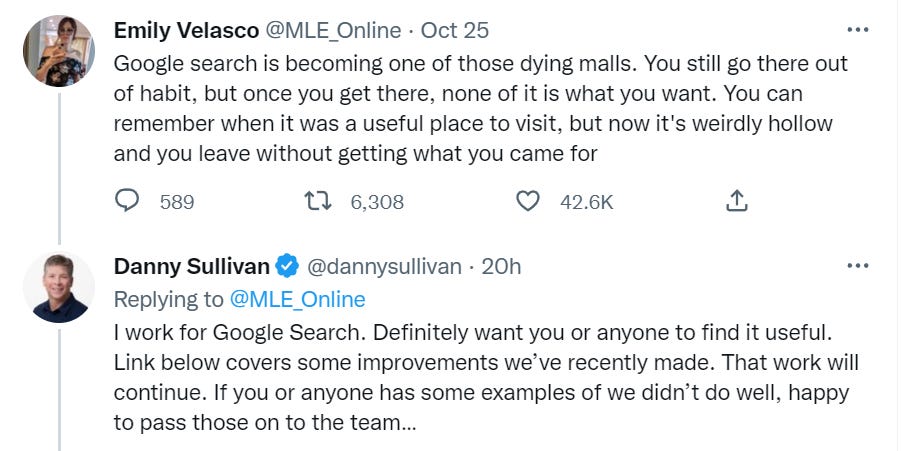



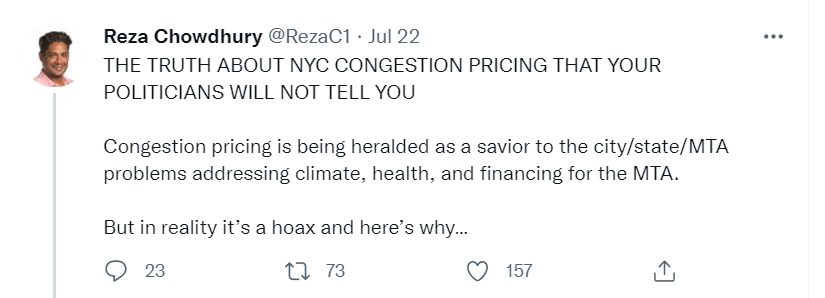






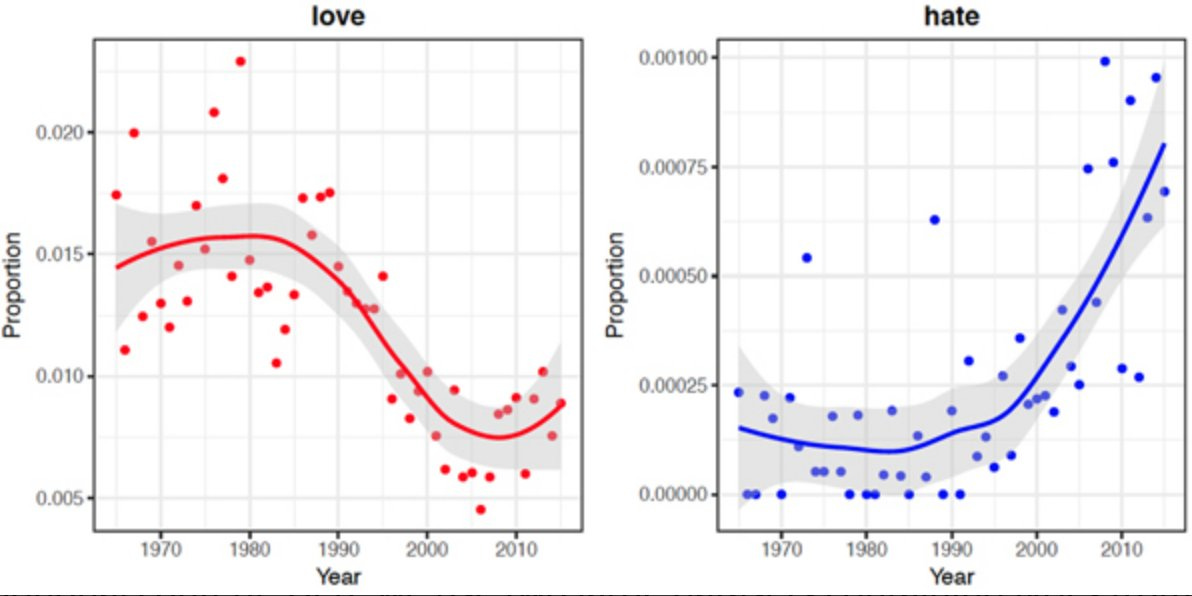
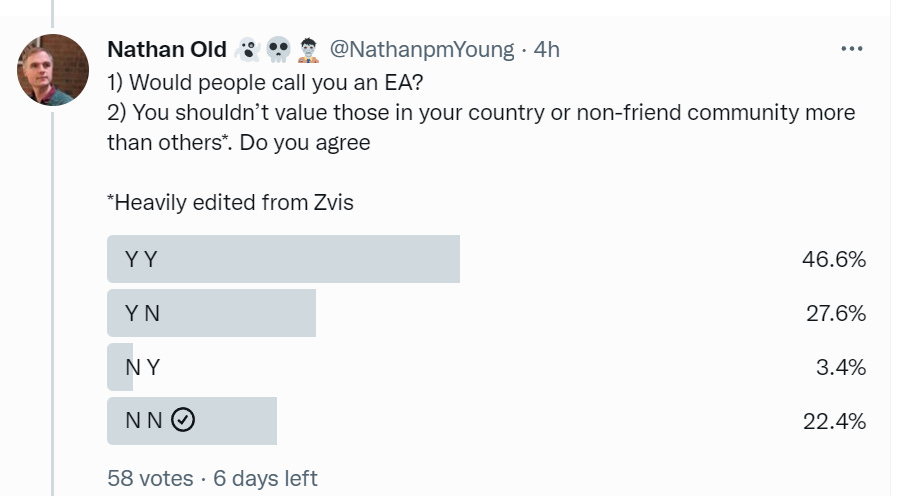


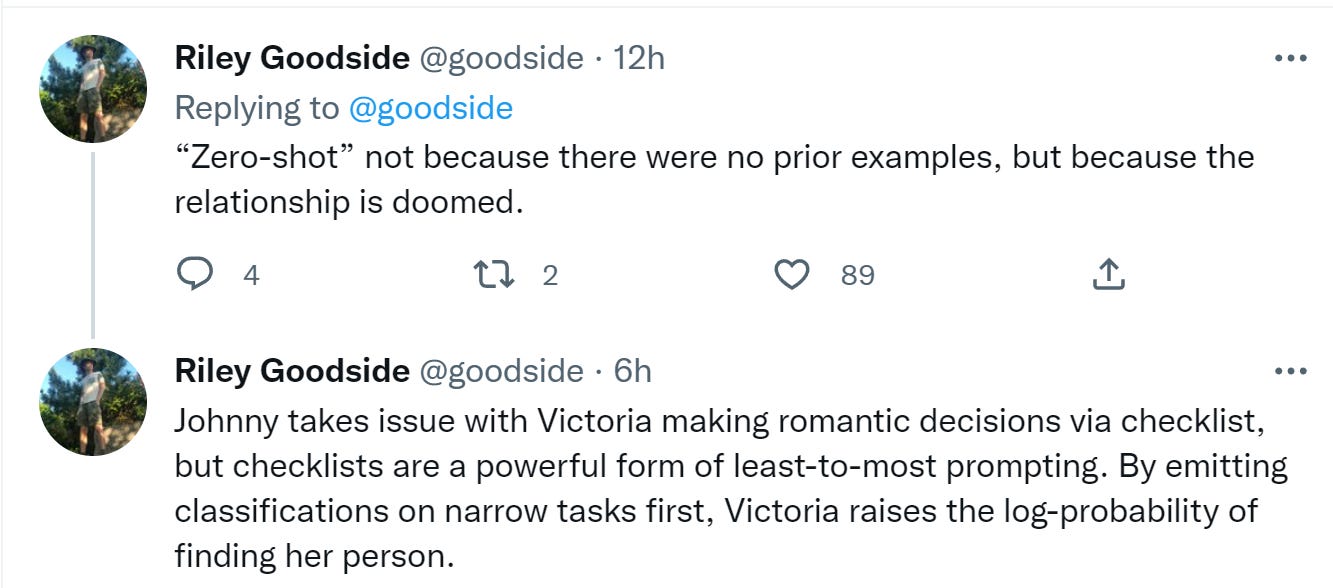

Master comment for 'this is a topic here that deserves more extensive treatment and/or should be posted on its own so we can refer back or link to it.'
Are these Weekly Roundup posts now Substack-only? I don't see this one on Wordpress.